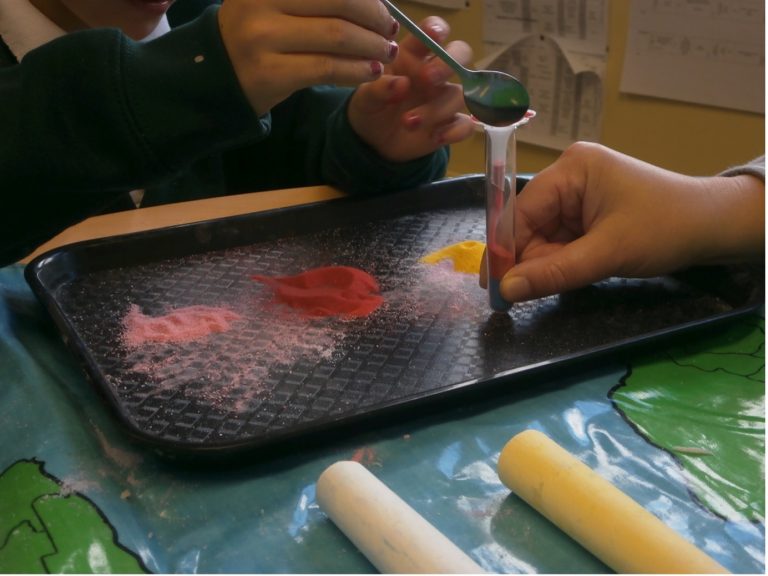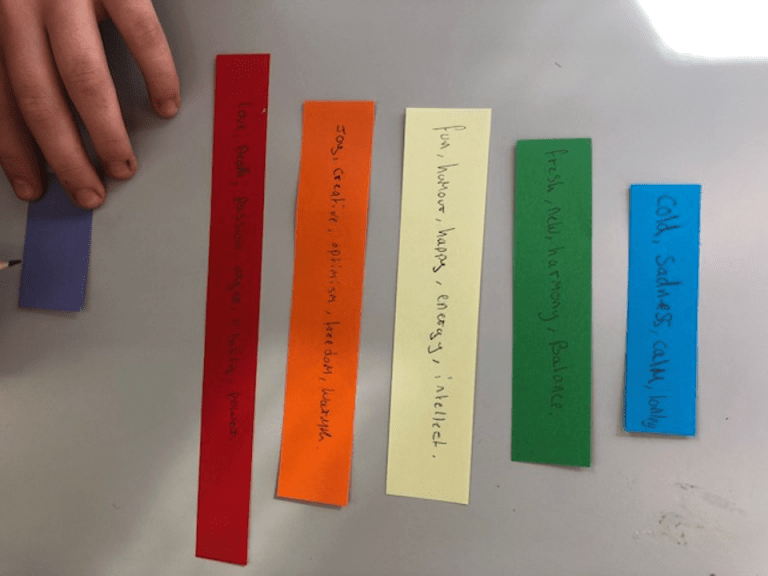Having worked at the school for 14 years, it was clear to see from talking to staff and observing students of that year group, that doing a project that could be implemented over a large group of students that would help lift their mind set, and encourage helping to support their emotional wellbeing was needed.
I researched on line ideas, and looked into OpenView, as they had very positive feedback and offered the right amount of understanding and nurture in their workshops. It then became apparent to me that them attending a 1-hour workshop might not have enough impact on its own, so I decided to make them into workshop days to help reinforce the impact more.
It was clear I needed to make sure it was the correct people delivering these workshops, who would have the right empathy and patience, as well as the positive and approachable nature to deliver the skills they had. I knew the ideal people were in house. Our support staff are passionate and fantastic at the specialty they offer, plus they know the school and the students. It was their time to shine as a team, and show the impact as well as the amazing relationships they have with these students, reinforcing good positive adult role models. I know how much they care, and I knew this would come across to the year 7 students and how beneficial it would be for them.
I spoke to staff that I thought would be interested and who are very skilled at their job, they are all from the support SEND team. We have skilled support staff who run Draw and Talk, Speech and Language, ELSA, Outdoor learning, and experienced HLTA’s and TA’S who know a lot of the year 7 very well. We all agreed on topics that each would cover, and I budgeted £250 to each of them for their resources. I arranged booking out classrooms, and changing timetables, as well as letters home for parents and the informing attendance. This was also beneficial for flagging up any student that had gone under the radar and needed extra support made aware of.
Each session I asked the teacher that would normally be teaching that class to attend to manage any issues, so the SEND team could just get on with delivering the workshops. They were there in case of behavior, or needing a quick word outside the door as well as if there was any illness to deal with. Some managed to lesson plan as the students were engaging and working well with the support teams, others interacted with the students and managed to spend time with them in a different setting. I wanted it to be clear though they were not TA’S today and running after teachers, it was a role reversal for these sessions, they were demonstrating their skills effectively, and the teachers were there to sort issues so they could focus and get on more effectively with running the sessions.
We ordered in lots of little indoor garden trays, peat, plants, stones etc, for them to work in teams to design an indoor garden tray then put it together. These were displayed in the school garden. We also ordered in stencils stickers, and stamps with lots of coloured pens for the dreams and goals workshops. They used the idea of PATH to express their work.
In the Emotional literacy the helped learn new vocabulary when talking about feelings, and made expression rainbows where they related colors to a feeling. This gave them a practical element to make it more enjoyable and help discussion.
The idea of the workshops was to help support them in dealing with emotional expression and improving their mindset.
Open -view used role play, small group activities, discussion and theater to help with expressing scenarios’ they showed a short film about a young boy called Jacob who was feeling stressed and showed them ways they could manage these symptoms and strategies they could use.
I managed the safeguarding aspect also by making sure the registers where completed correctly and logged straight away for each session.
I monitored behavior, and spoke to any students removed outside the classrooms. Only one student was removed from the workshop for behavior. I helped to issue praise and encouragement, and monitor the overall activities for the day. This included labeling rooms, over seeing them to the correct ones, and organizing line up’s at break and lunch to escort them in to stop any chaos and crowd manage. This helped the children with anxiety to feel more reassured.





